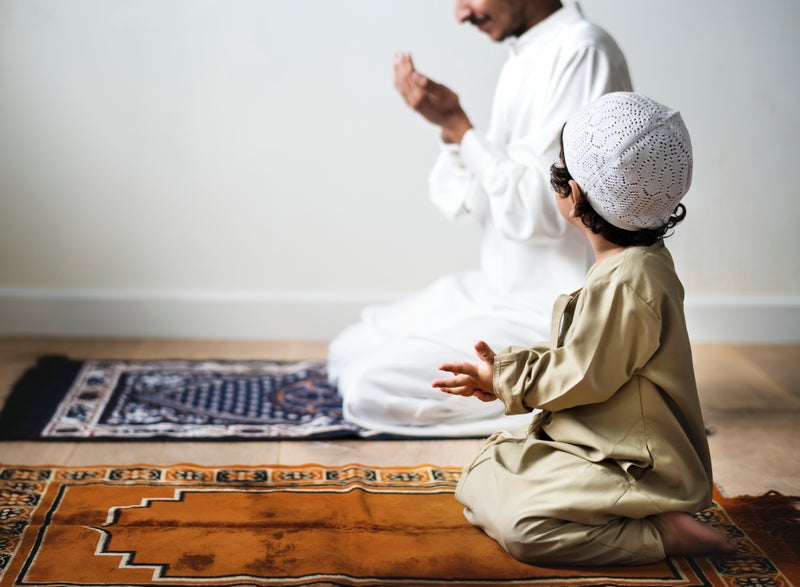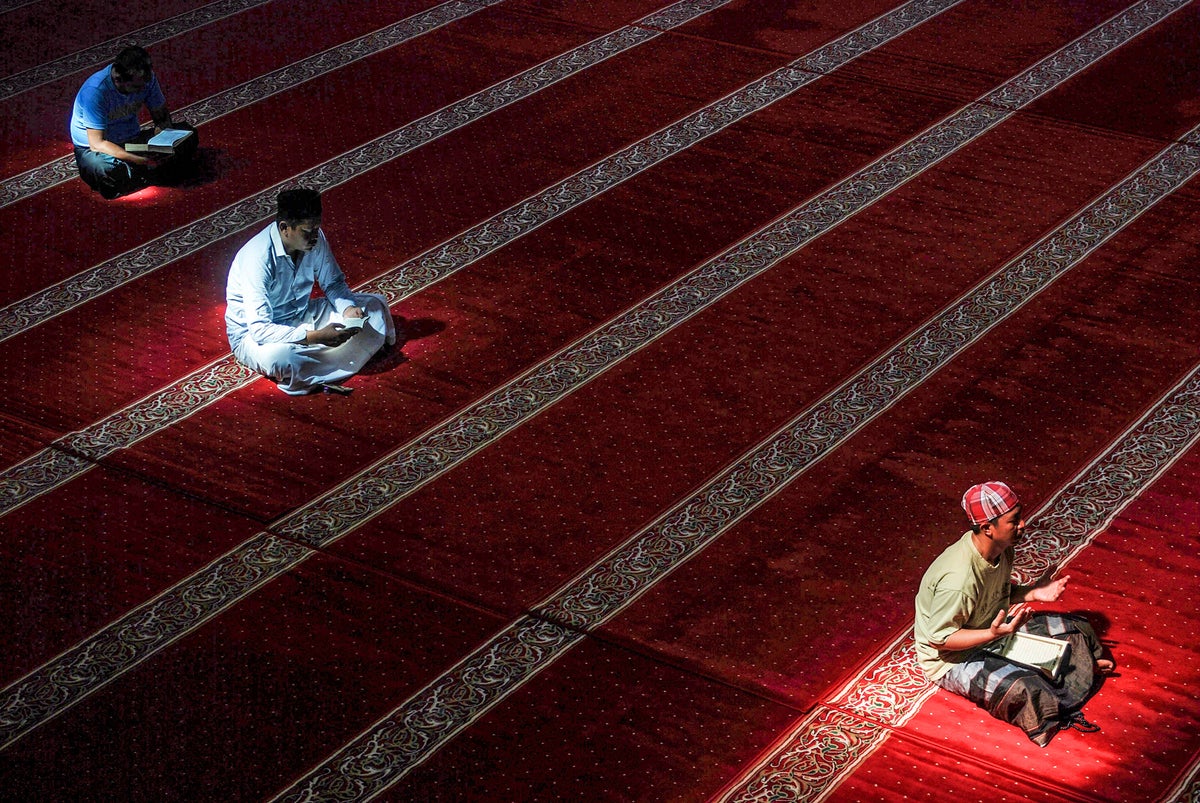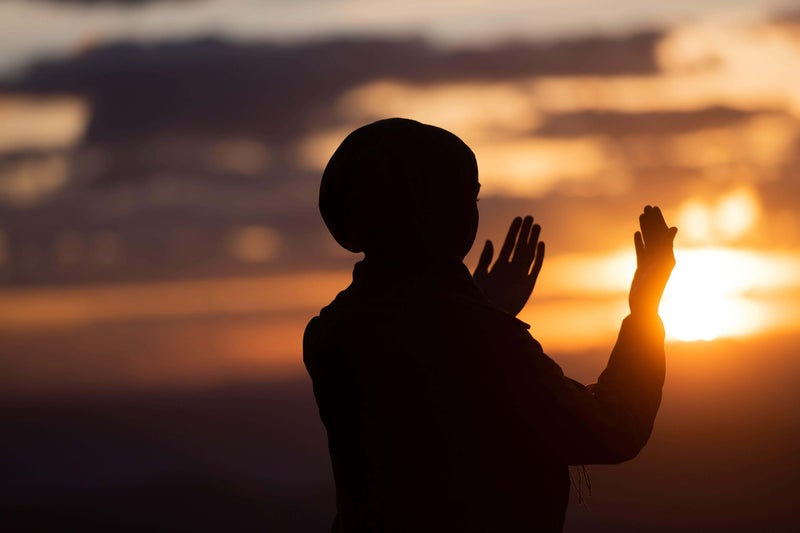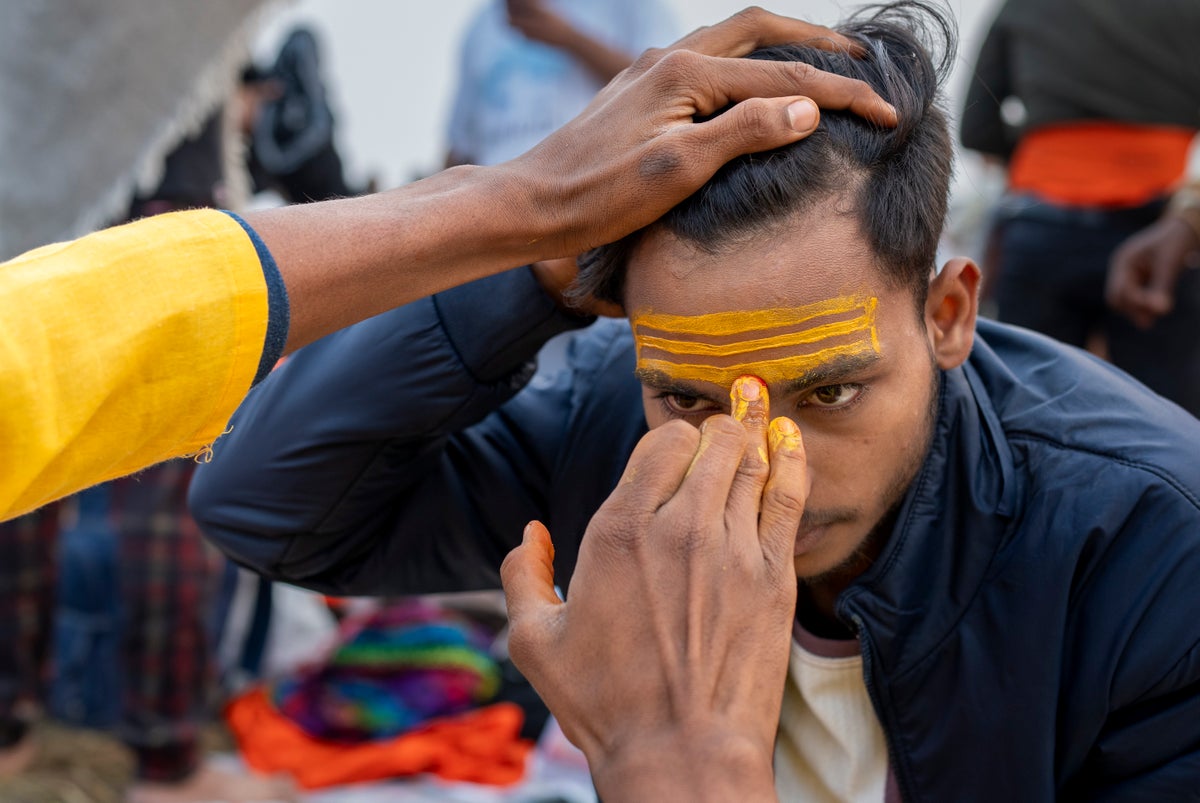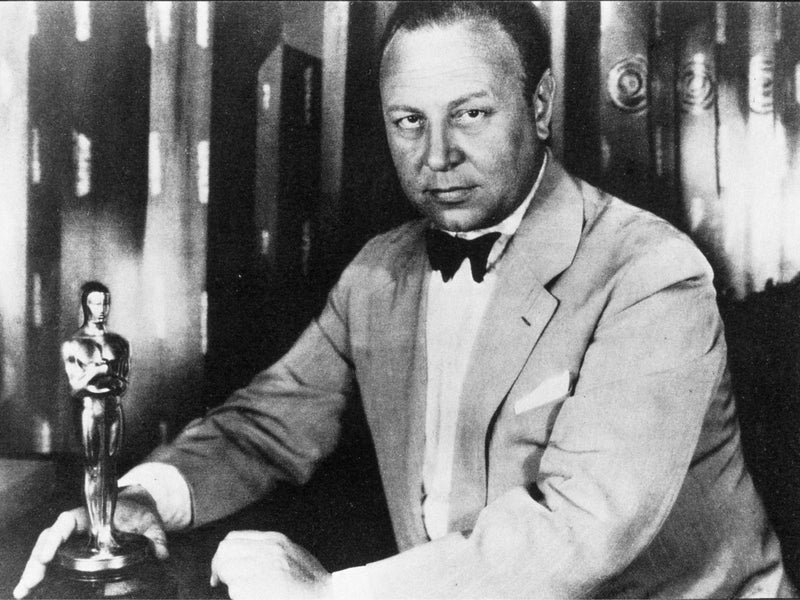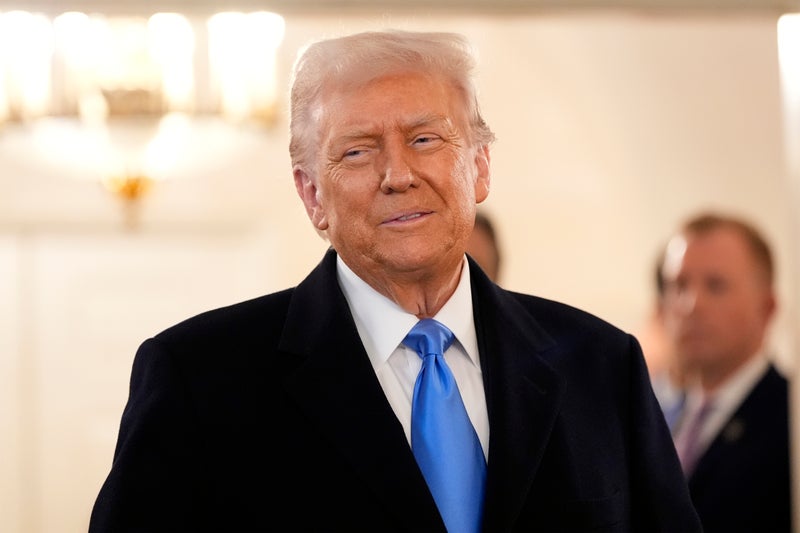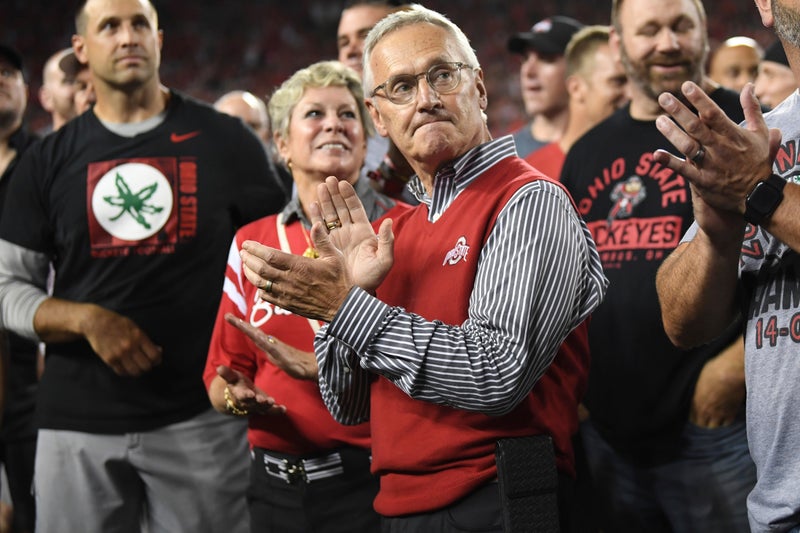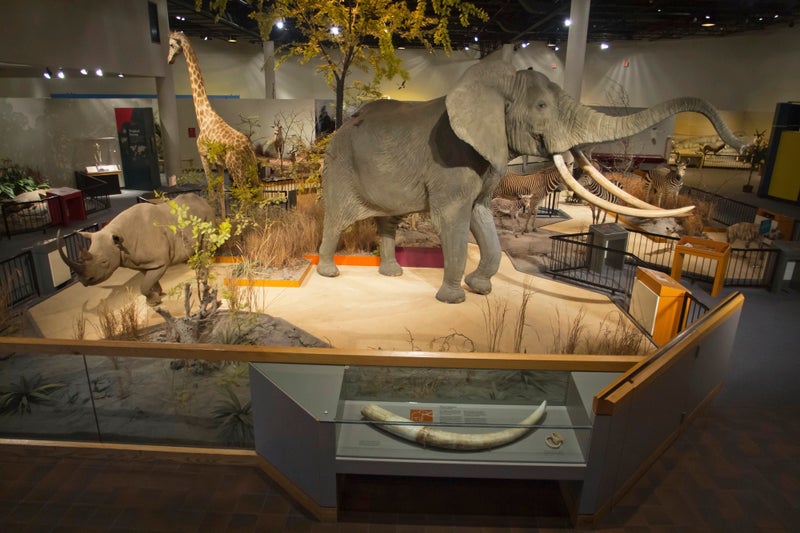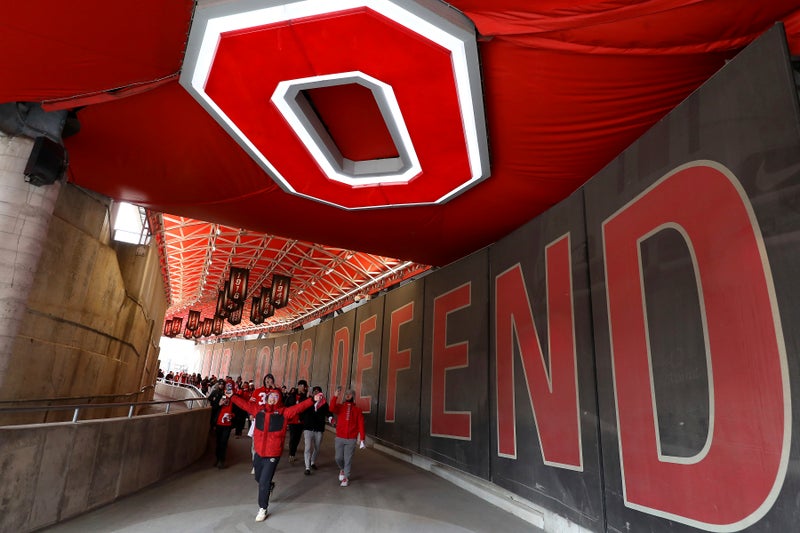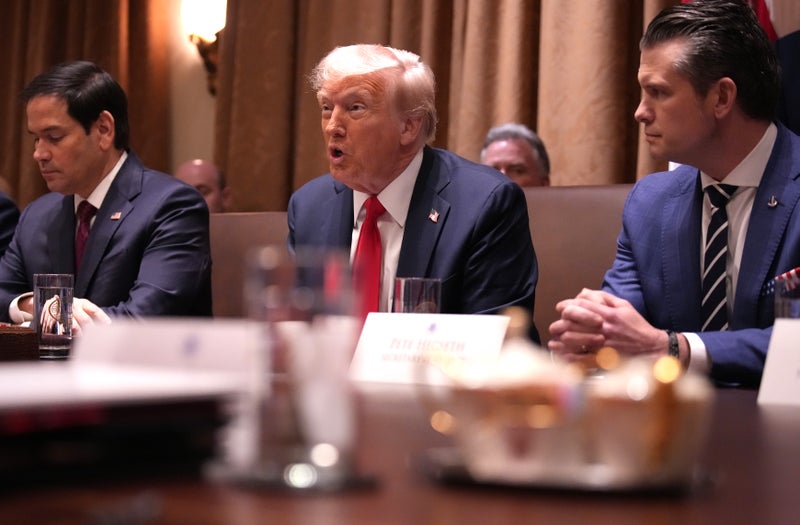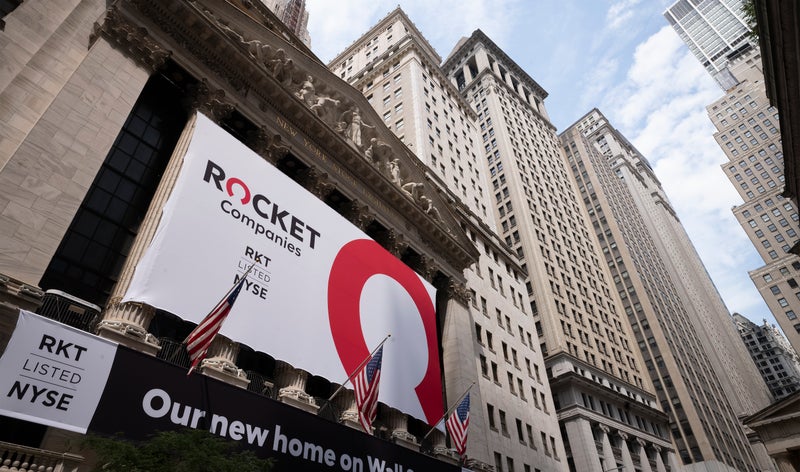In Indonesia, where nearly 90% of population (282 million) practice Islam, celebrations range from colorful torchlight parades to cleaning family graves, to preparing food for pre-dawn breakfasts and elaborate post-sundown meals known as “iftars.” Each region in the vast archipelago nation of 17,000 islands has its own way to mark the start of Ramadan.
An AP photographer recently captured a property company worker, Samsul Anwar, his wife, Rekanita Amelia Yusuf, and their 8-year-old nephew, Argha Al Khawarizmi, as they joined a torchlight parade along the streets of their neighborhood in Tangerang, a city just outside the capital, Jakarta.
The next day, Anwar — like many other Muslims on the main island of Java, including in Jakarta — also mark the holy month by cleaning his relatives’ graves, scattering flower petals and praying for the deceased.
As most Indonesians are tolerant of other religions, Chinese Indonesian communities also took part, performing the “barongsai” or “lion dance,” a prominent part of Chinese New Year celebrations, while the drumbeats and trumpets created a vibrant party mood.
Ramadan is a time of togetherness for Muslims, as they fill mosques for hours of prayer and share large, lavish meals with family, friends and neighbors after days of dawn-to-dusk fasting.


